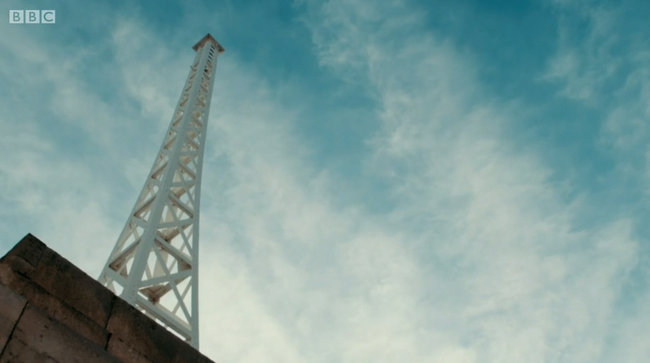(Source: BBC News via Jon Langley)
 Mystery of BBC radio’s first broadcasts revealed 100 years on
Mystery of BBC radio’s first broadcasts revealed 100 years on
The BBC is celebrating the centenary of its first official broadcast – a news bulletin that included a court report from the Old Bailey, details of London fog disruption, and billiards scores.
It was broadcast by London station 2LO, but new research shows many early BBC moments came from northern England.
Manchester station 2ZY aired the first children’s show and introduced the first regular weather forecast.
Birmingham’s 5IT station broadcast the first “official concert”
The BBC that began broadcasting at 6pm on 14 November 1922 was not the British Broadcasting Corporation of today. It was in fact the British Broadcasting Company and was made up of separate stations around the country operated by different companies.
London 2LO was run by the Marconi company. Manchester’s station was operated by Metropolitan-Vickers.
However, in these early days few records were kept of what was broadcast.
But new research on the BBC’s very early days has been carried out by Steve Arnold, a self-confessed Radio Times obsessive.
His tricky task was to try to piece together the BBC’s schedules before the Radio Times – so named as it listed the times that the new medium’s shows were being broadcast – was first published in September 1923.
He explained he found information in “gossip columns [in regional newspapers] mainly, people saying we listened to this last night and this is the only record of some of these things”.
Now, using sources from archive documents and newspapers, Steve has begun to piece together a picture of what the early BBC was doing. [Continue reading at the BBC…]

Too bad they cut the broadcast.
Interesting stuff about the BBC centenary, but nothing about the frequencies? or Kilocycles ?
So how we can tune?
That likely changed every now and then, for example the 1929 Radex states “361.4m” (~830kcs), some 1930s list have 841 or 1150 kcs for 2LO. If you mean the rebroadcasts, the article states “BBC Radio 4”, so if in doubt tune to 198 kHz today at 18:00GMT. 🙂
Here’s the oldest list (1925) I could find: https://worldradiohistory.com/hd2/IDX-Logs-&-Lists/IDX/Citizens/Call-Book-1925a-Spring-OCR-Page-0044.pdf
Thanks, for that page.
side-note, look at Cuba , there where less then 4milions peoples then
https://en.wikipedia.org/wiki/1931_Cuba_census
but more radio stations then GB.
Yeah, It also didn’t take long until there were more radio manufacturers than Cuba had listeners. 🙂
Upon more research I found the “Radio Times” magazine of the British Broadcasting *Company* online too. The first issue September 1923 did not mention their wavelengths either, but the issue that’ll be 100 years old on Wednesday has on the first program schedule page. Not that it would’ve had much relevance for most listeners back then anyway, but it seems it was all so new that it took a few days until it came to them that this could be an interesting information. 🙂
https://genome.ch.bbc.co.uk/496933c47da448ee9ed6e5507994c36f